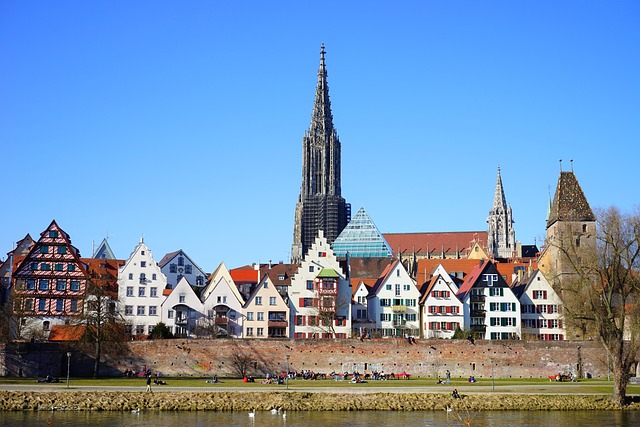Comprehensive Dual Diagnosis Treatment in Rochester, NH: Success Stories & Effective Therapies
Dual Diagnosis Centers in Rochester, New Hampshire, provide specialized care for individuals with co…….
Over 15% US adults have used prescription painkillers not prescribed to them.
In the intricate landscape of healthcare, particularly within the realm of mental health and substance use disorder treatment, “Dual Diagnosis Centers Rochester New Hampshire” stands as a beacon of hope and specialized care. This comprehensive analysis aims to provide an in-depth understanding of these centers, their role, and their impact on individuals grappling with co-occurring disorders. By exploring various facets, from historical roots to global implications, this article will guide readers through the intricate world of dual diagnosis treatment, highlighting its significance and potential for transformation.
Dual Diagnosis centers, specifically in Rochester, New Hampshire, are specialized healthcare facilities designed to address two concurrent disorders or conditions: a mental health disorder (such as depression, anxiety, bipolar disorder) and a substance use disorder (including alcohol, prescription drug, or illegal drug addiction). These centers recognize that both conditions often coexist and require integrated treatment approaches.
The core components of such centers typically include:
The concept of dual diagnosis treatment emerged in the late 20th century as researchers and clinicians began recognizing the high rates of co-occurring disorders among individuals seeking mental health or substance use treatment. Previously, these conditions were often treated separately, leading to fragmented care. The development of dual diagnosis centers was a response to this gap in healthcare services.
In Rochester, New Hampshire, these centers have played a pivotal role in addressing the growing concerns related to co-occurring disorders, particularly among adolescents and young adults. By providing holistic treatment, these facilities aim to improve long-term recovery rates, reduce relapse, and enhance overall quality of life for individuals facing dual challenges.
The influence of Dual Diagnosis Centers Rochester New Hampshire extends far beyond regional boundaries, reflecting a global trend in mental health care. Here’s an overview:
The dual diagnosis center market is a niche yet growing segment within the broader healthcare industry. In New Hampshire, as in many regions, there has been a steady increase in private investments aimed at expanding access to these specialized services. This trend reflects:
Economically, dual diagnosis centers contribute to local communities in several ways:
Technology has revolutionized dual diagnosis treatment in numerous ways:
Advanced data management systems allow for secure storage and analysis of large datasets related to dual diagnosis patients. This enables researchers and clinicians:
The operation of dual diagnosis centers is governed by strict legal frameworks and licensing requirements:
Policies related to dual diagnosis care have significant implications:
Despite their benefits, dual diagnosis centers face several challenges:
To address these issues, several strategies can be implemented:
In Rochester, New Hampshire, a collaborative effort between local hospitals, mental health clinics, and community organizations led to the establishment of an innovative dual diagnosis program. This initiative:
The US Department of Veterans Affairs (VA) implemented a nationwide dual diagnosis model, providing integrated care for veterans with co-occurring disorders. This initiative:
The future of dual diagnosis centers in Rochester, New Hampshire, is likely to be shaped by ongoing technological innovations:
Integrated care models will remain a focus, with healthcare systems recognizing the benefits of collaborative approaches:
Preventing the onset of co-occurring disorders and intervening early will become a priority:
Dual Diagnosis Centers Rochester New Hampshire represent a significant advancement in the field of mental health care, offering specialized support for individuals grappling with complex co-occurring disorders. Through comprehensive assessment, integrated treatment, and community engagement, these centers have demonstrated improved outcomes and enhanced quality of life for their patients.
The global impact of this approach underscores its potential to revolutionize healthcare systems worldwide, addressing a growing need in an increasingly interconnected world. As technology continues to evolve, and policies adapt, dual diagnosis care is poised to become even more accessible, effective, and transformative.
Q: What are the signs that someone might need dual diagnosis treatment?
A: Signs can include persistent feelings of sadness or anxiety, changes in appetite or sleep patterns, difficulty concentrating, irritability, substance use to cope with emotional distress, and a history of mental health disorders in family members.
Q: How do I know if dual diagnosis treatment is right for me or a loved one?
A: If you or someone close to you experiences co-occurring mental health and substance use disorders, seek professional help from a qualified healthcare provider who specializes in dual diagnosis care. They can conduct a comprehensive assessment to determine the best course of action.
Q: Are dual diagnosis centers covered by insurance?
A: Yes, many insurance plans cover dual diagnosis treatment. However, coverage varies, so it’s essential to check with your specific insurer and understand your policy’s terms and conditions regarding mental health and substance use disorder treatment.
Q: What can I expect during the treatment process?
A: Treatment typically involves a combination of individual therapy, group counseling, medication management (if needed), and education about coping strategies. The process is highly personalized, adapting to your unique needs and progress. After initial treatment, ongoing support through aftercare programs ensures sustained recovery.
Q: How do I find the right dual diagnosis center for my needs?
A: Consider factors like location, program specialty, treatment approach, insurance coverage, and client reviews. Research centers that align with your specific needs and preferences, and consult healthcare professionals or support groups for recommendations.

Dual Diagnosis Centers in Rochester, New Hampshire, provide specialized care for individuals with co…….

Dual Diagnosis Centers in Rochester, NH provide integrated care for co-occurring mental health and s…….

Dual Diagnosis Centers in Rochester, New Hampshire, specialize in treating co-occurring mental healt…….